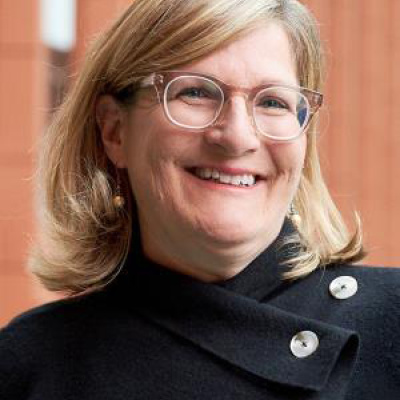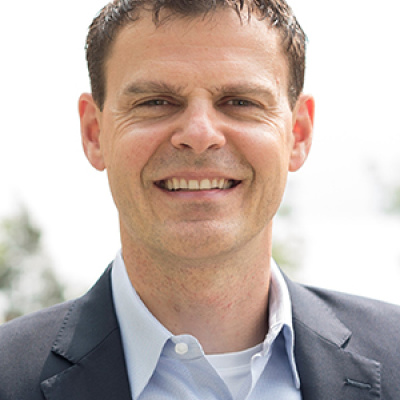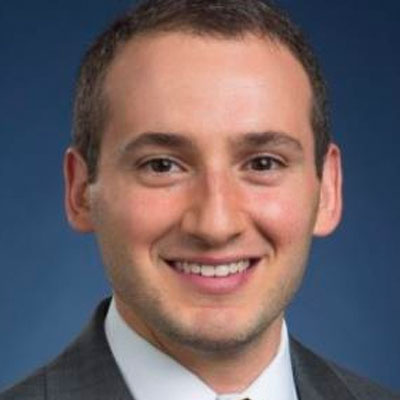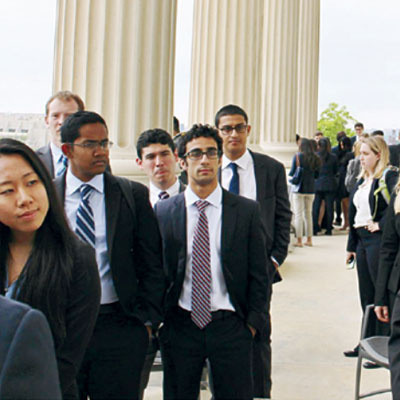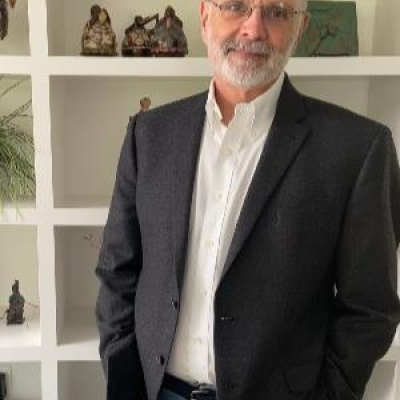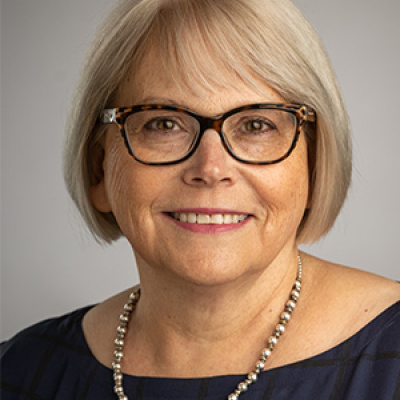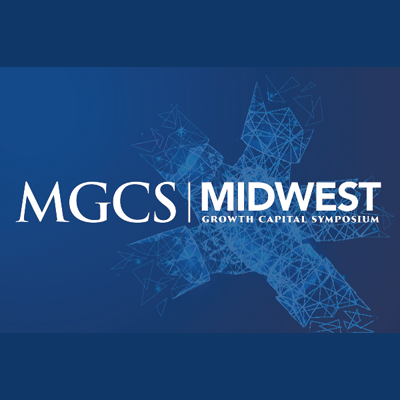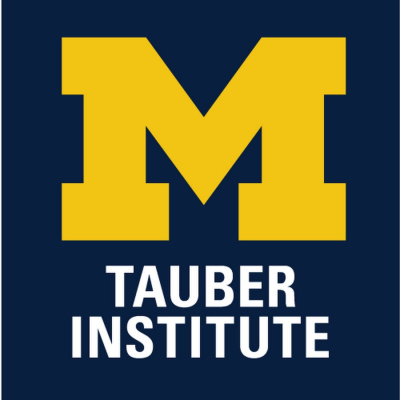Explore the faculty research, thought leadership, and groundbreaking philosophies that established Michigan Ross as one of the world’s top business schools.
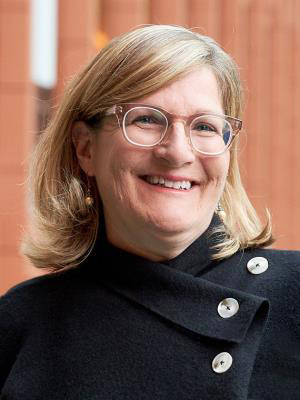
Professor Gretchen Spreitzer received her PhD from Michigan Ross in 1992. Her work on empowerment, stemming from her Michigan Ross dissertation, has set the foundation for a new understanding of the employee experience. Instead of capital that organizations needed to control, empowerment brought forth the idea that employees thrive when they are given the freedom and autonomy to do their work autonomously. This pioneering work ushered in a new era of research and a fundamental shift in how organizations view their relationship with employees.

In 2007, Professor Maxim Sytch published a paper titled "Joint Dependence and Embeddedness: Reshaping Interorganizational Relationships and Exchange Dynamics." In this work, Sytch and his coauthor identify how joint dependence can shape relational embeddedness in inter-organizational relationships. Joint dependence stimulates relational closeness, collaborative action, and fine-grained information exchange between partners. These dynamics improve the performance of inter-organizational exchanges and reduce uncertainty within the relationship. Additionally, they reshape the exchange logic associated with interdependence, moving from an emphasis on power and leverage to a focus on relational embeddedness and mutual collaboration. This work has served as a potent counter to previous organizational and economic theories that associated interdependence with power, leverage, and mutual holdup. However, Sytch demonstrated that joint dependence can foster stronger bonds between exchange partners, leading to more effective exchanges without the looming threat of retaliation. Furthermore, the concept of joint dependence underscores that reducing relational uncertainty does not necessarily require less dependence on that partner. On the contrary, a mutual increase in dependence can foster relational closeness within the exchange, reducing opportunism, enhancing collaboration, and improving the performance of exchange relationships.

From 1990-1993, Michigan Ross housed the Minority Summer Institute with support from the Association to Advance Collegiate Schools of Business and the Graduate Management Admission Council. MSI was designed to increase the number of minority faculty in business and management education.
Each year, 30 Black, Hispanic, and Native American college students were selected to participate in MSI's six-week program. While at Ross, the students were involved in a series of classes, informational sessions, and presentations that provided a first-hand introduction to doctoral studies and the life and work of business professors.
According to Dave Wilson, former president of GMAC, "When one thinks about changing the world, the MSI initiative must be seen as a resounding success." Following the last offering of MSI, the KPMG Foundation initiated the PhD Project, which has continued the mission of MSI. The PhD Project reports that the number of underrepresented business professors in the United States has risen from 294 in 1994 to more than 1,700 today.
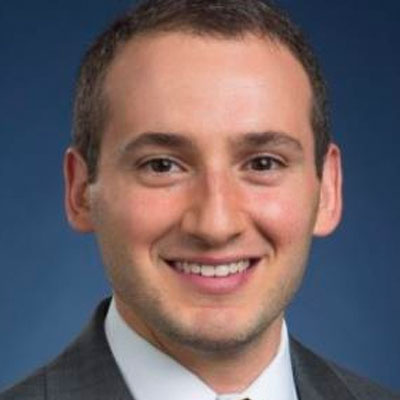
Building on his experience as an attorney at the Federal Reserve, the 2020-22 research of Assistant Professor Jeremy Kress has identified critical weaknesses in bank merger oversight and proposed strategies to reinvigorate bank merger enforcement. Kress' work has shown that lax bank merger oversight has harmed consumers, businesses, and the broader financial system. His research has demonstrated that the prevailing approach to bank merger regulation has increased the cost and reduced the availability of consumer credit, inflated the fees that banks charge for basic financial services, limited small business credit availability, and threatened financial stability. Kress' research has pushed bank merger reform onto the policy agenda in Washington, D.C. by serving as a blueprint for legislation introduced by Senator Elizabeth Warren and inspiring an executive order on bank mergers by President Joe Biden. The Department of Justice also invited Kress to lead a joint initiative with the federal banking agencies to rewrite their bank merger policies.

In the early 1990s, Professor Garry Brewer became dean of the U-M School of Natural Resources and the Environment. He approached Dean Joe White of the Michigan Business School with the concept of a dual-degree program to prepare future business leaders with an integrated education in both earth and management sciences. The concept took shape first in 1993 in the form of a graduate dual-degree program (originally called the Corporate Environmental Management Program) under the leadership of Professor Stuart Hart and then the Erb Institute after a generous grant from Fred and Barbara Erb in 1996 and a series of additional donations from other visionary donors. The dual-degree program was then incorporated into the Erb Institute and bolstered by the scholarly research of three newly endowed professorships. Nearly 30 years later, the Erb Institute has expanded dramatically to become a full-fledged, endowed institute with three chaired professors, an undergraduate Erb Fellows Program, more than 200 graduate and undergraduate students, and more than 750 alumni across 17 countries. In addition, the institute has an active agenda of scholarly and applied research and works to facilitate business engagement through business roundtables and global conference partnerships. Today, the Erb Institute is generally recognized as the leading business sustainability institute for research, teaching, and business engagement.

The Carson Scholars Program at Michigan Ross is a signature feature of the Ross BBA Program and a result of the vision and generosity of David Carson, BBA '55. Carson, the former president of People's Savings Bank in Connecticut, was recognized by Forbes as one of the 500 most powerful people in the corporate United States. Based on his experiences throughout his career, Carson realized that future business leaders should understand how government works to develop effective corporate strategies for participating in the public policy arena. As a result, CSP enables Ross undergraduates to augment their on-campus learning with study in Washington, D.C., where they meet with elected officials, government experts, industry leaders, issue advocates, and lobbyists. Since its foundation in 2005, the program has enabled more than 1,000 alumni to learn about the public policy process from these experts.

Professor C.K. Prahalad was the major pioneer and advocate of the 'bottom of the pyramid' proposition that selling to the poor can simultaneously be profitable and help eradicate poverty. While appealing, the BOP proposition is also controversial. Professor Aneel Karnani was an early and prominent critic of the BOP proposition. In his 2007 article "The Mirage of Marketing to the Bottom of the Pyramid" and his 2011 book Fighting Poverty Together: Rethinking Strategies for Business, Governments, and Civil Society to Reduce Poverty, he argues for an alternative perspective. Rather than viewing the poor primarily as consumers, it is better to focus on the poor as producers and to emphasize buying from the poor. Both the private sector and government have a critical role to play in alleviating poverty. The best way to alleviate poverty is to raise the real income of the poor by providing them appropriate employment opportunities. The private sector is the best engine of job creation. The government should facilitate the creation and growth of private enterprises in labor-intensive sectors of the economy. The government should also fulfill its traditional, accepted functions of providing adequate access to public services, such as education, public health, drinkable water, sanitation, security, and infrastructure.

Under the leadership of Marian Krzyzowski, Michigan Ross launched the Domestic Corps in 1992 with financial support from the United States Department of Education Fund for the Improvement of Post-Secondary Education. The Domestic Corps provided leadership development and action-based learning opportunities for Ross students while providing critical business assistance to the non-profit community in the United States. For 15 years, the Domestic Corps placed hundreds of students in more than 100 non-profit organizations nationwide, where they worked on projects in economically distressed and culturally diverse communities. That included Native American communities, inner city community-based organizations, and rural non-profits. The Domestic Corps also partnered with the University of Michigan's Neighborhood AmeriCorps Program to place MBA interns in 20 more than Detroit community-based organizations. The Domestic Corps projects helped raise millions of dollars, won national awards for community and economic development, and transformed numerous organizations while simultaneously providing students with management experience in challenging contexts and instilling a sense of corporate responsibility and social justice.

The root of the Great Financial Crisis of 2008-2009 lay in poor-quality residential mortgage loans made by financial institutions. A set of academic research papers established that lenders made poorer quality loans when they anticipated selling the loans to investors rather than continuing to own the loans until they matured. When loans were sold, a complex securitization process led to a large distance between the originator of a mortgage and the final investor in the loans. Amit Seru, PhD '07, and co-authors established in an important series of papers that focused on 1) keeping most characteristics of loans the same, loans that were only marginally easier to securitize had significantly higher default rates than those that were marginally more difficult to securitize, 2) (in work with Professor Uday Rajan) securitized loans, the interest rate (which represents the compensation to investors for bearing the risk of default by the borrower) became an increasingly worse predictor of default in the build-up to the GFC, and 3) information passed on to investors by mortgage securitizers was limited and sometimes outright fraudulent. In another crucial strand of work, Professor Amiyatosh Purnanandam demonstrated that 1) loans held by banks on their own balance sheets had lower default rates than otherwise identical loans sold by banks to investors and 2) (in work with Taylor Begley, PhD '14, and Kuncheng Zheng, PhD '15) even with securitized loans, default rates were lower when the riskiest tranche was held by the lender rather than sold to investors. Collectively, the work done by Ross faculty and PhD alums showed that the ability to securitize mortgage loans undermined the incentives of lenders to the point that low-quality mortgage loans were made, essentially providing the dry timber that fueled the GFC.
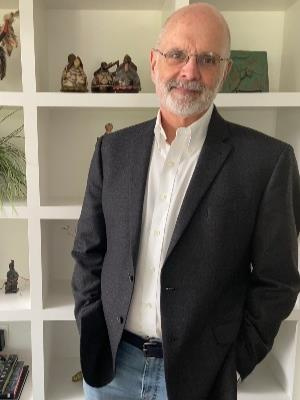
Professor Jim Walsh played a significant role in the development of work on individual, group, and collective cognition in organizations. Interested in managerial mistakes, Walsh wanted to know if executives’ worldviews could blind them to their decision environments. He was also interested in learning how the cognitive capabilities of both leadership teams and the organization itself could be harnessed for the good of organizations. In a 1988 Academy of Management Journal article, Walsh traced how these belief structures might or might not blind executives to their decision environments. He also considered how these belief structures may or may not combine to shape team decision-making. Therefore, he wrote a theoretical paper about these possibilities, which was published in the Journal of Management in 1986. He followed up that article with an empirical effort to measure and trace the impact of “negotiated belief structures” on decision-making (Organizational Behavior and Human Decision Processes published his findings in 1988). His thoughts then turned to the organization as a whole. He wrote a seminal paper on organizational memory, one that identified the nature of information selection, retention, and retrieval processes in organizations – for the good or ill of those organizations. That work was published in the Academy of Management Review in 1991. When interest in cognition in organizations started to grow, Walsh became a founding officer of the Academy of Management’s Managerial and Organizational Cognition Interest Group in 1990 and helped to lead that pioneering group of scholars for the first three years of its existence. Tying all of the insights and experiences together, he wrote what became something of a field-defining scholarly paper in 1995. Titled “Managerial Organizational Cognition: Notes from a Trip Down Memory Lane,” it was published in Organization Science. Today the Managerial and Organizational Cognition Division of the Academy of Management is home to more than 1,200 scholars worldwide. Citing his foundational scholarship and early leadership, the Division honored Jim with its Distinguished Scholar Award in 2020.

Since the COVID-19 pandemic, the public K-12 education system has faced significantly high teacher turnover and poor retention rates. Teachers have faced increasing pressure to achieve academic success while challenged with growing class sizes, reduced funding, and learning loss from the pandemic. This problem has been incredibly difficult to correct, and public school districts across the country have not been able to address it cost effectively.
In their paper, “Stopping the Revolving Door: An Empirical and Textual Study of Crowdfunding and Teacher Turnover,” Professors Samantha Keppler, Jun Li, and Andrew Wu conducted a study of data from the largest teacher crowdfunding site, DonorsChoose, to study the effect of crowdfunded projects on teacher retention. The team found that teachers are less likely to leave their schools and the state public school system when their projects are funded. Assessing teachers’ project request essays, they identified that teachers who received funding for unique projects or requested resources to improve their classroom environment had higher retention rates.
Their paper is the first to identify the effect of crowdfunding on teacher retention. It provides initial, strong evidence that the effect is positive, showing that teachers funded on DonorsChoose are 1.6 percentage points (pp) less likely to leave their schools and 1.9 pp less likely to leave the teaching profession — a 14% and 41% reduction versus baseline turnover and attrition rates, respectively.
Due to the demonstrated impact of teacher-driven crowdfunded projects, DonorsChoose has partnered with eight states to spend COVID-19 education relief funding on teacher crowdfunding projects. To date, these partnerships have funded over $100 million of teacher projects from over 100,000 teachers, impacting over 10 million students.

”Bifurcation of the Owner and Operator Analysis" was published by Professor Lynda Oswald in 1994. Her research was cited and quoted extensively by the U.S. Supreme Court in its unanimous decision in United States v. Bestfoods (1998) in clarifying parent corporations' direct and indirect liability for their subsidiaries’ actions in the context of CERCLA liability and hazardous waste cleanup. The liability of a parent corporation for the acts of the subsidiary is a complex issue that permeates all areas of corporate law and business relationships, and is not confined to the environmental context found in Bestfoods. Oswald’s research has since informed the decisions of over 55 additional courts -- federal trial and appellate courts as well as state appellate and supreme courts -- in business law contexts as varied as environmental liability, whistle-blowing under the Sarbanes-Oxley Act, the Racketeering-Influenced Corrupt Practices Act (RICO), employment discrimination, medical malpractice, negligence, bankruptcy, and real estate transactions.
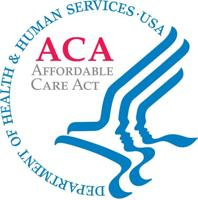
The Affordable Care Act represented arguably the largest change in federal health policy since the creation of the Medicare and Medicaid programs in the 1960s, expanding coverage to approximately 40 million people who were previously uninsured. In a series of papers published in the Quarterly Journal of Economics, New England Journal of Medicine, AEJ: Applied Economics, Journal of Public Economics, and other outlets, Associate Professor Sarah Miller and her co-author Dr. Lara R. Wherry quantify the impact of this policy on the predominantly low-income population who gained coverage as a result of the reform's resultant changes in Medicaid eligibility. Their work has shown that 1) low-income adults who gained coverage through the ACA Medicaid expansions experienced reduced mortality rates and that the failure of some states to adopt these expansions cost approximately 4,800 deaths per year in those states; 2) low-income adults who gained coverage through these expansions experienced improved access to medical care and improved financial outcomes; 3) the expansion of coverage to these individuals did not crowd out care provided to population who were unaffected, such as those in Medicare. This work has garnered over 1,800 citations and has been discussed in numerous high-profile media outlets and policy documents.

Originally launched by Michigan Ross Professor David Brophy and now organized and run by the Zell Lurie Institute for Entrepreneurial Studies, the Midwest Growth Capital Symposium began as an opportunity to showcase innovative Michigan ventures seeking funding and connect them with venture capitalists, angel investors, industry stakeholders, and leaders from across the nation.
Today, the Symposium provides a platform for pre-selected Midwest companies to present their business ideas and investment opportunities. These companies span various sectors, such as life sciences, healthcare, technology, food and agriculture, and energy. First held in 1980, the Symposium is the longest-running university-based venture fair of its kind, has gained recognition, and attracts attendees from across the country.

Following the decision of Dobbs v. Jackson Women's Health Organization by the U.S. Supreme Court, abortion restrictions within the United States have proliferated, and it is reasonable to expect that access to abortion services will be even further reduced in the future. The work of Associate Professor Sarah Miller investigates the impact of abortion denial using new linkages between data from the Turnaway Study and administrative records in credit reports. The Turnaway Study was a path-breaking study from the University of California San Francisco that recruited women seeking abortions, some of whom had pregnancies that just exceeded the gestational age limit of the clinic they attended and were denied abortions, others who fell just below this limit and were able to receive the abortion they sought. Miller and her co-authors found that women denied an abortion and those who received an abortion were on similar trajectories before the denial, but those denied an abortion experienced a large spike in financial problems such as unpaid bills and public records (such as bankruptcies and liens). This spike in financial problems persisted for the full six-year follow-up period that the authors had access to. The results provide evidence counter to the narrative that abortion is exclusively harmful to women who receive one (because of, for example, the regret they may feel after receiving an abortion). Instead, it suggests that giving women control over the timing of their reproduction allows them greater financial stability and self-sufficiency.

Beginning from seminal efforts by Brian Talbot at the Michigan Business School in the early 1990s, the Tauber Institute for Global Operations was designed to bring business and engineering students together for a world-class education in operations. Students would take classes in both business and engineering and complete team projects with companies. The projects were scoped to incorporate both business and engineering content, addressing important problems that had a VP-level champion at the sponsoring company. The institute was innovative by offering additional training to students beyond operations: leadership training, communications training, and providing students the opportunity to organize conferences, etc. In addition to its impact on students and companies, the Institute has for years served as an important mechanism fueling the technology and operations faculty's relevant, problem-driven research by putting them in touch with practitioners at leading companies around the world. Since its foundation, more than 1,500 graduates have completed the program as Tauber Fellows, there have been 720 summer projects executed at 145 companies, and the Institute was honored in 2012 with the prestigious UPS George D. Smith Prize from INFORMS.





